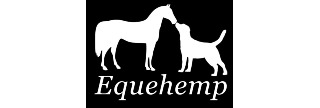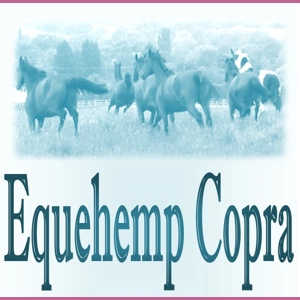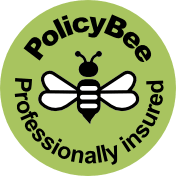Copra - Coconut
PURE COPRA FOR SKIN,COAT & HOOVES COOL SOURCE OF HIGH PROTEIN ENERGY
HealthSolution & ProteinSolution
Available in 1kg pack
Recommended feed guidlines as a supplement can be decreased/increased to suit needs
Ponies: 15g
Horses: 25g
Horses over 700kg: 35g
SUITABLE FOR ALL HORSES AND PONIES
Coconut meal copra is made from the white part of the coconut It has had most of the oil extracted but has many vitamins,minerals & amino acids. It has low Non Structural Carbohydrates that has a high digestible energy content providing a cool energy from coconut oil and fibre. Containing calcium, phosphrous,magnesium, sulpher, potassium, sodium, iron, copper, magnese & zinc along with amino acids lysine & methionine.
gives your horse a readily digestible energy, without the hotness that generally comes with high grain diets, the digestibility of copra is high. Copra contains less than 12% starch therefore it does not cause starch-related disorders
A ProteinSolution
Protein makes up approximately 15% of total body mass of horse. After water, it is the most abundant substance in your horse’s body. When a horse consumes protein, it’s broken down into individual amino acids and absorbed into the bloodstream. These amino acids can then be used to build different protein chains for the body, forming enzymes, cell structures, muscle protein, connective tissue for hooves, hair and more. Meeting crude protein requirements is only part of ensuring your horse has adequate protein. He also needs adequate amino acids. Amino acids are the building blocks of protein. There are 21 primary amino acids, which are broken down into two main categories: non-essential (dispensable) and essential (indispensable). Non-essential amino acids can be manufactured by the horse. Essentials need to be provided through the diet.
Your horse will pull the most important protein chains – the ones he needs for survival – from his own amino acid profile. Areas such as topline and hooves come afterwards. If there are not enough amino acids left over, he cannot form these protein chains. The missing ones are called “limiting amino acids” because the amount a horse has limits the amount of protein that can be made. The most limiting amino acids for your horse are lysine, methionine and threonine. Feeding a variety of protein sources is key to ensuring your horse has an adequate supply of amino acids. Each protein source has different amino acids that your horse will break down and re-use. Examples of various protein sources include grass, hay, legumes, grain, flax, split peas and chia seeds. Adding protein to a diet can also add calories.
A HealthSolution
We all want our animals to be healthy and happy, we do as much as we can in our day to day lives to maintain that, animal behavior is a significant factor in determining an animal’s health. Normal healthy animal behavior includes an animal who stays within their group (if they live within a group) with eyes that are bright with a moist nose without discharge, no wounds, and is eating normally. Some animals are very good at hiding when they are feeling under the weather but we can look out for signs such as them being irritable, listless, lame, have a temperature are away from the group on their own not eating or drinking etc.....
Several factors can play a part in an animal’s health. Some of these include what they are fed are they getting enough vitamins and minerals and where their feed maybe stored, water quality, pasture condition, types of plants the animal has access too and even weather conditions.
Vitamins and mineral supplements whether they be from herbs, seeds or artificial may help improve the efficiency of energy utilization and can be of great benefit to animals.
 AED
AED AFN
AFN ALL
ALL AMD
AMD ANG
ANG AOA
AOA ARS
ARS AUD
AUD AWG
AWG AZN
AZN BAM
BAM BBD
BBD BDT
BDT BGN
BGN BHD
BHD BIF
BIF BMD
BMD BND
BND BOB
BOB BRL
BRL BSD
BSD BTN
BTN BWP
BWP BYN
BYN BZD
BZD CAD
CAD CDF
CDF CHF
CHF CLF
CLF CLP
CLP CNH
CNH CNY
CNY COP
COP CRC
CRC CUC
CUC CUP
CUP CVE
CVE CZK
CZK DJF
DJF DKK
DKK DOP
DOP DZD
DZD EGP
EGP ERN
ERN ETB
ETB EUR
EUR FJD
FJD FKP
FKP GEL
GEL GGP
GGP GHS
GHS GIP
GIP GMD
GMD GNF
GNF GTQ
GTQ GYD
GYD HKD
HKD HNL
HNL HRK
HRK HTG
HTG HUF
HUF IDR
IDR ILS
ILS IMP
IMP INR
INR IQD
IQD IRR
IRR ISK
ISK JEP
JEP JMD
JMD JOD
JOD JPY
JPY KES
KES KGS
KGS KHR
KHR KMF
KMF KPW
KPW KRW
KRW KWD
KWD KYD
KYD KZT
KZT LAK
LAK LBP
LBP LKR
LKR LRD
LRD LSL
LSL LYD
LYD MAD
MAD MDL
MDL MGA
MGA MKD
MKD MMK
MMK MNT
MNT MOP
MOP MRU
MRU MUR
MUR MVR
MVR MWK
MWK MXN
MXN MYR
MYR MZN
MZN NAD
NAD NGN
NGN NIO
NIO NOK
NOK NPR
NPR NZD
NZD OMR
OMR PAB
PAB PEN
PEN PGK
PGK PHP
PHP PKR
PKR PLN
PLN PYG
PYG QAR
QAR RON
RON RSD
RSD RUB
RUB RWF
RWF SAR
SAR SBD
SBD SCR
SCR SDG
SDG SEK
SEK SGD
SGD SHP
SHP SLE
SLE SLL
SLL SOS
SOS SRD
SRD SSP
SSP STD
STD STN
STN SVC
SVC SYP
SYP SZL
SZL THB
THB TJS
TJS TMT
TMT TND
TND TOP
TOP TRY
TRY TTD
TTD TWD
TWD TZS
TZS UAH
UAH UGX
UGX USD
USD UYU
UYU UZS
UZS VES
VES VND
VND VUV
VUV WST
WST XAF
XAF XCD
XCD XCG
XCG XOF
XOF XPF
XPF YER
YER ZAR
ZAR ZMW
ZMW ZWG
ZWG ZWL
ZWL English
English






























































